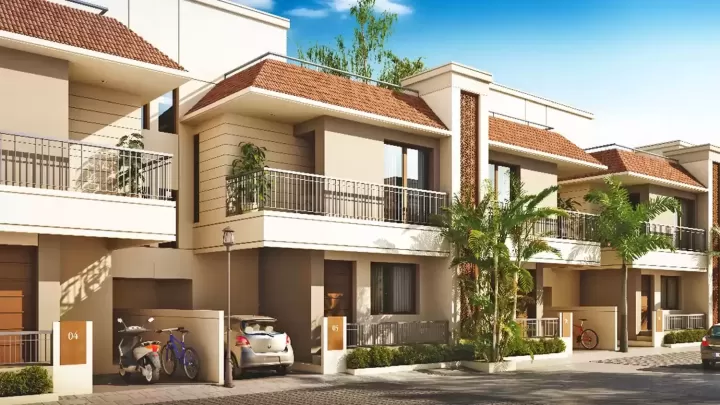Investing in the UK’s property has always been lucrative for those looking to grow their wealth, or even make it as a main stream of income. According to a research conducted by Savills, the UK house prices are expected to rise by over 13% in the next four years. But, that is just half the story. The reality is that the success of the property development project requires a lot of commitment and risk-taking.
Although every development project goes through a similar process, but every potential property developer needs to know that no two development projects are exactly the same. Smaller projects may have less work, risk, problems compared to bigger projects, but for the best practice, you should tick every checkbox of the development project steps.
If you are interested in becoming a property developer, here is how you can start your career in property development.
1 Creating a property development business plan
To some extent, all business plans involve the same key elements –
- What goals you wish to achieve with your property development project?
- Who are your target audiences?
- Whether it is residential or commercial property?
- How are you going to raise funds?
- What will be the approximate cost and time of development?
- Are you looking for a quick flip profit or boost long-term income through letting?
These are some of the questions that you need to ask yourself. Answering these questions will help you keep organized.
It is also crucial to understand some pros and cons of the property development. The pros are, you can make a lot of money if your development project completes as planned and you save on expenses, and some cons are unforeseen costs and circumstances that need may cause your project to fail.
2 Finding the right site
Before starting the development project, you need to find out what buyers and renters are looking for in an area and how much you can afford to invest in the property development. Choosing the right location plays a pivotal role in successful property development.
That doesn’t mean you should buy in the best part of town because chances are high that property prices will already be near the peak, and they are less likely to significantly increase in the future. Rather, find areas that offer future development opportunities. Always think from the target audience perspective. Families look for a safe environment with schools around. Young professionals look for easy transport options.
Make sure you get in touch with local real estate agents as they may be aware of what buyers and renters are looking for. Make close relationships with them as they might also help you sell your property after the development is complete.
3 Calculating ROI
In any business, ROI is important to calculate, as this is the only way you can know whether you will make a profit or loss. And things are no different when it comes to property development. You need to know what needs to be considered when considering the total cost and get your maths right.
If you are planning to build a property for selling, then the ROI will be the sale price minus the purchase price. If you are planning to rent the property post development, you need to calculate annual return on your rental property minus the purchase price.
But, in many cases, the purchase price is more complex than it sounds. It not only includes the cost of developing the property, but also the deposit, legal fees, management fees, arrangement fees, stamp duty, solicitor fees, estate agent fees and surveyor costs if you are planning to take development finance in London.
4 Designing, planning and permission
The next step in the process is building a development design and making sure all the planning permissions are in place. Create a clever design with the help of your architect and surveyor to optimally utilise every inch of the site.
For proper project planning, you may require to partner with other professionals based on your development requirements. Here are some professional that you might need during the project term.
Architect –creates blueprint of the building layout.
Civil engineer – designs and builds the infrastructure.
Interior designer – creates functional and appealing indoor spaces.
Quantity surveyor – handles all cost related matters.
Builder – supervises the construction project and deals with other vendors.
A property project may require a range of permissions before the development begins. This includes planning permission, building permission, local permission and any other permission that may be required throughout the process. Also, keep in mind the approval timelines based on the permit requirements. Make provisions for waiting time for approval and include the holding costs.
5 Managing finances
Here comes the most important part of the process – managing the finances. If you are planning to develop a property, but don’t have enough cash lying around, then you will need some kind of finance in place to fund your project.
Property development finance is the most common type of finance that is used by the majority of property developers. It is particularly used for the property development, whether you are carrying out light refurbishment work or building from scratch.
Property development finance in London is targeted at experienced developers. Hence, you will likely need to show a solid track record to convince the lender that you have successfully executed development projects in the past. If you are new in the property development market, you need to show that you have adequate knowledge about the market and how it operates. Moreover, the lender will also ask for the strong development plan, and you need to demonstrate that you know exactly what you are doing at every stage of the development process.
If the lender approves your application, the funds will be released in stages in the build to allow work to continue, once the current task is marked complete.
Proceeding with the actual development
Now that you have completed all the above steps, you can go ahead with actual development. As a developer, you should aim to build and complete the project on time and within budget. You should also pay attention to the bridging finance, construction cost and project timeline in order to maintain a steady cash flow. If you are not sure about how to secure financing for your next development project, consult a financial advisor who will help you walk through the process.




